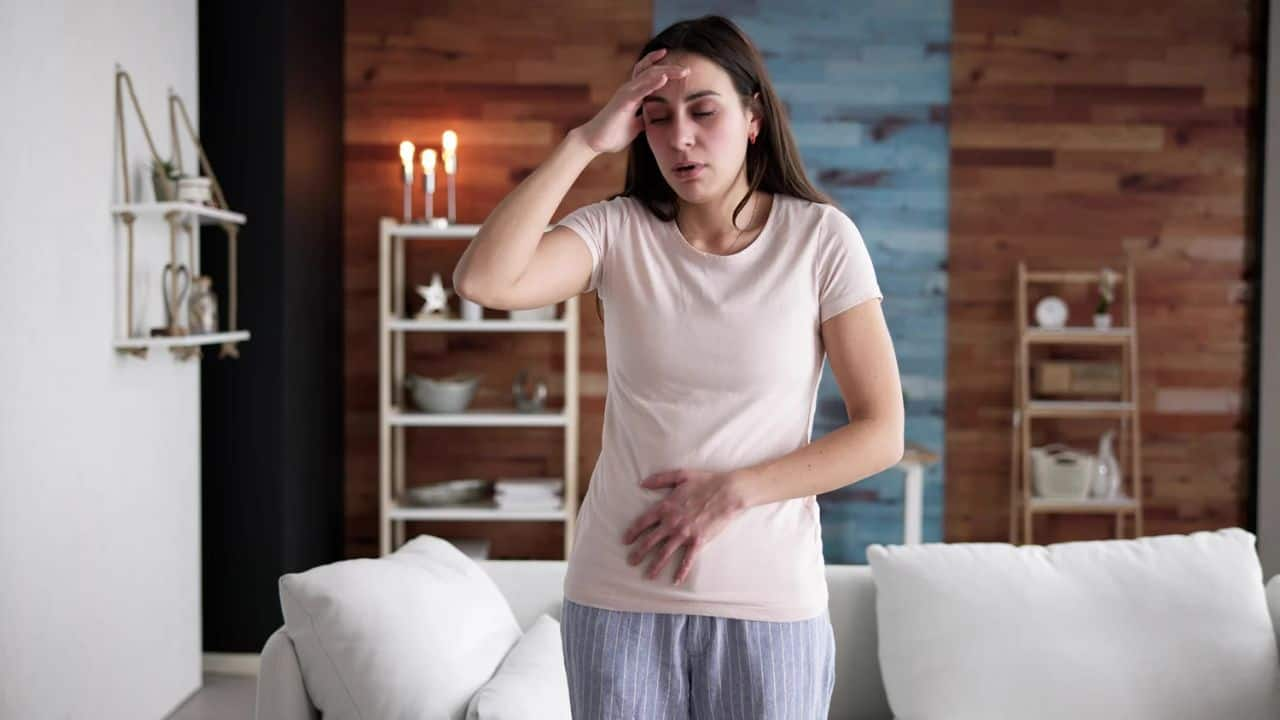April 22, 2025 / 13:54 IST
Pregnancy tips: Lower back pain is among the most common pregnancy complaints, especially in the second and third trimesters (Images: Canva)
Pregnancy comes with its fair share of aches and discomforts. As the body nurtures new life, it undergoes numerous physical and hormonal changes. These changes, while natural, can sometimes result in discomfort, especially in the form of body aches. From sore backs to leg cramps, many pregnant women experience some level of pain throughout the trimesters.
Pregnancy is a time of rapid transformation. The musculoskeletal system adjusts in remarkable ways to accommodate the growing baby, says Dr Astha Dayal, Robotic and Laparoscopic Surgeon, Director Obstetrics and Gynecology, CK Birla Hospital Gurgaon. However, with these changes often come some very common discomforts. “Hormones such as relaxin cause ligaments to loosen, making joints more mobile but also less stable. Add to that the extra weight, postural shifts, and nutritional demands, the many reasons why the body aches. Nevertheless, most pregnancy-related pain is temporary and manageable with simple lifestyle tweaks and proper care,” suggests Dr Dayal.
Story continues below Advertisement
Every trimester brings different sensations, and it’s important to listen to your body’s cues. “Women often try to power through the pain. It is crucial that they take rest and get proper support, as it can make a big difference,” the expert says.
 Causes of headaches and neck tension during pregnancy: Fluctuating hormones, disrupted sleep, and poor posture can lead to headaches or tension in the neck and shoulders
Causes of headaches and neck tension during pregnancy: Fluctuating hormones, disrupted sleep, and poor posture can lead to headaches or tension in the neck and shoulders
Also read | Mother's diet during pregnancy: Here's what to eat
Additionally, she shares that pain that worsens, doesn’t improve with rest, or interferes with daily life should always be discussed with your doctor. “Gentle exercise, good nutrition, posture support, and adequate hydration are vital for managing discomfort,” she suggests.
Dr Dayal shares the most common types of body aches during pregnancy and tips to deal with them:
- Lower back pain: This is among the most common pregnancy complaints, especially in the second and third trimesters. As the baby grows, the center of gravity shifts forward, straining the spine and back muscles. To ease the tension, Dr Dayal suggests maintaining good posture, avoiding high heels, and using pillows to support the lower back while sitting or sleeping. “Prenatal yoga, swimming, or even light back-strengthening exercises can offer excellent relief,” she adds.
- Round ligament pain: This is marked by sharp, stabbing pains on one or both sides of the lower belly or groin, often triggered by sudden movements. “As the uterus grows, the round ligaments that support it, stretch and can cause discomfort. Remember to avoid quick position changes, and allow the body to rest for at least 8 hours at night. Wearing a maternity support belt may also ease the pull on ligaments during daily activities,” Dr Dayal says.
Also read | Pregnancy and nutrition: 5 superfoods for expecting mom and her baby- Hip and pelvic pain: This discomfort typically emerges in the later stages of pregnancy as the hormone relaxin loosens the joints in preparation for childbirth. “The result can be aching hips or pain in the pelvic area, also known as pelvic girdle pain or symphysis pubis dysfunction,” says Dr. Dayal, and suggests sleeping on your side with a pillow between your knees, avoiding lifting heavy objects, and moving both legs together when getting out of bed. “Physiotherapy may be necessary in more severe cases,” she adds.
- Leg cramps: These sudden, painful cramps often strike at night and can be linked to a deficiency in magnesium or iron. “Hydration is key. Include magnesium-rich foods like leafy greens, nuts, and seeds. Plus, vitamin E or L-Carnitine supplements may also help, but only after discussing them with your doctor. Gentle stretching before bed may help reduce the frequency of these cramps,” Dr Dayal says.
- Headaches and neck tension: Fluctuating hormones, disrupted sleep, and poor posture can lead to headaches or tension in the neck and shoulders. “To combat this, take frequent breaks from screens, stay well-hydrated, and try warm or cold compresses. If headaches are persistent or accompanied by visual changes, check your blood pressure to rule out any complications like preeclampsia,” Dr Dayal cautions.
Disclaimer: This article, including health and fitness advice, only provides generic information. Don’t treat it as a substitute for qualified medical opinion. Always consult a specialist for specific health diagnosis. Discover the latest Business News, Sensex, and Nifty updates. Obtain Personal Finance insights, tax queries, and expert opinions on Moneycontrol or download the Moneycontrol App to stay updated!




 Causes of headaches and neck tension during pregnancy: Fluctuating hormones, disrupted sleep, and poor posture can lead to headaches or tension in the neck and shoulders
Causes of headaches and neck tension during pregnancy: Fluctuating hormones, disrupted sleep, and poor posture can lead to headaches or tension in the neck and shoulders